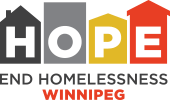“End Homelessness Winnipeg, an Indigenous agency that advocates for unsheltered Winnipeggers, has released a guide to help residents understand and interact with people experiencing homelessness.”
Read more from the Winnipeg Sun: https://winnipegsun.com/news/news-news/homeless-need-support-not-stigma-and-stereotypes-homelessness-advocate-says
Download the Guide on What to Do when encountering an encampment or person who may be unsheltered here
